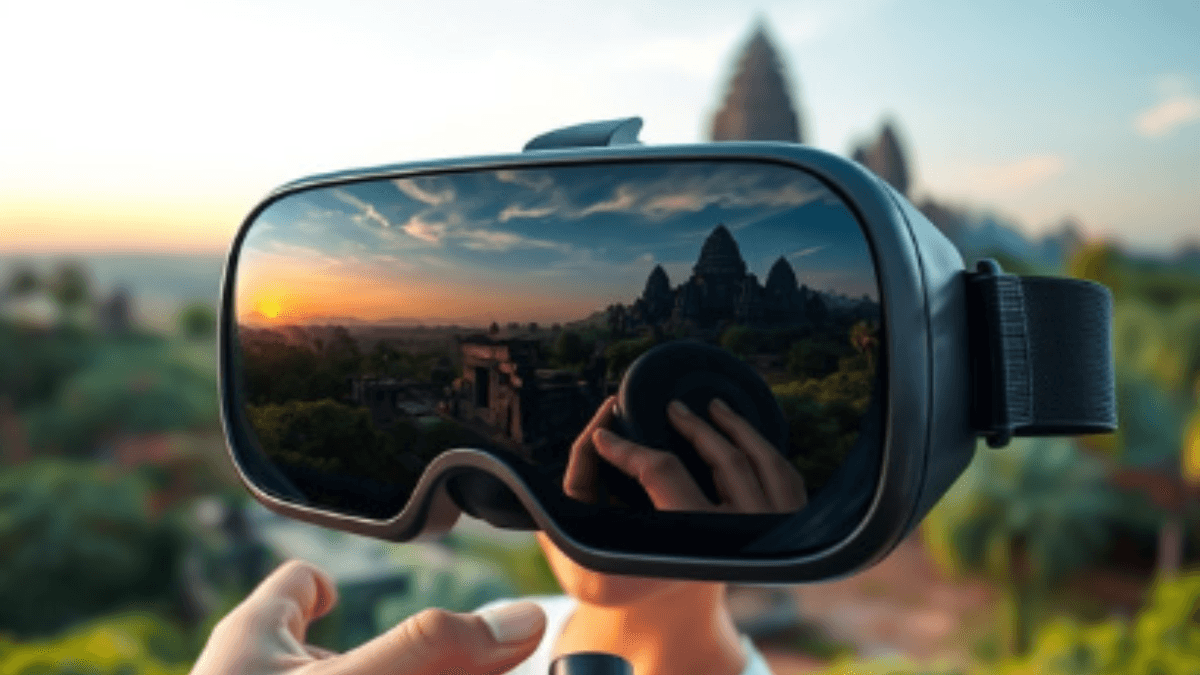Virtual reality (VR) is no longer just a futuristic concept—it’s here, transforming the way we work, play, and interact with the world. From high-tech gaming experiences to life-changing applications in medicine and education, VR is pushing the boundaries of digital innovation.
As technology advances, VR is becoming more immersive, realistic, and accessible. But what does the future hold for this revolutionary technology? How will VR shape the way we live, communicate, and experience entertainment?
In this article, we’ll explore the latest VR innovations, the industries benefiting from this technology, and what’s next in the evolution of virtual reality.
Understanding Virtual Reality
What is Virtual Reality?
Virtual reality (VR) is a simulated digital environment that immerses users in an interactive, three-dimensional world. Unlike traditional screens, VR surrounds users with computer-generated visuals, sounds, and even haptic feedback to create an immersive experience.
VR is often compared to:
- Augmented Reality (AR): Overlays digital objects onto the real world (e.g., Pokémon GO).
- Mixed Reality (MR): Blends real and virtual environments for interactive experiences (e.g., Microsoft HoloLens).
How VR Technology Works
VR systems rely on several key components:
- Headsets (HMDs): Devices like the Meta Quest and HTC Vive display 3D environments.
- Motion Tracking: Sensors follow head, hand, and body movements.
- Haptic Feedback: Gloves and suits provide realistic touch sensations.
Evolution of VR: From Past to Present
The concept of VR dates back to the 1960s, with early devices like the Sensorama and the Sword of Damocles. In the 1990s, companies like Nintendo attempted VR gaming, but technology wasn’t ready.
Today, VR has reached new heights, with standalone headsets, realistic graphics, and even AI-driven interactions.
Cutting-Edge VR Innovations
Next-Gen VR Hardware
Modern VR devices continue to improve:
- Meta Quest 3 & PlayStation VR2 – Standalone, wireless, and feature-rich.
- HTC Vive XR Elite & Valve Index – High-end, ultra-responsive VR.
- Apple Vision Pro (Upcoming) – A potential game-changer in mixed reality.
Haptic Feedback and Sensory Immersion
Advanced VR gloves and bodysuits now allow users to feel textures and temperature in virtual environments. Companies like HaptX and Teslasuit are developing next-gen tactile feedback.
Advancements in VR Graphics and AI
- AI-driven physics make VR environments more dynamic.
- Eye-tracking technology enhances realism and interaction.
VR in Gaming and Entertainment
The Rise of Immersive VR Gaming
VR gaming has transformed how people experience interactive content. Some of the top VR games include:
- Half-Life: Alyx – A groundbreaking VR shooter.
- Beat Saber – A rhythm-based fitness game.
- Resident Evil 4 VR – A terrifying first-person horror experience.
The Future of VR in Esports and Multiplayer Gaming
Competitive VR gaming is growing, with esports leagues integrating virtual reality tournaments. Multiplayer VR worlds, like VRChat and Rec Room, are bringing people together globally.
Virtual Reality in the Film and Music Industry
- VR concerts let fans attend live events from home.
- 360-degree movies create interactive cinematic experiences.
Beyond Gaming: VR’s Impact on Other Industries
VR in Education and Training
- Students can travel through history or explore the human body in VR.
- VR training is revolutionizing medical, aviation, and military fields.
VR in Healthcare and Therapy
Doctors are using VR for:
- Virtual surgery simulations to train medical students.
- Therapy for PTSD and anxiety, exposing patients to controlled scenarios.
The Role of VR in Business and Remote Work
- Virtual offices allow employees to collaborate in 3D spaces.
- Companies use VR for remote product design and engineering.
The Future of VR and Its Challenges
The Metaverse and the Future of Social VR
Companies like Meta (Facebook) envision a VR-based metaverse, where people work, socialize, and live digitally.
Ethical and Privacy Concerns in VR
- Data collection risks – How much personal information do VR devices track?
- VR addiction concerns – Can excessive VR use impact mental health?
What’s Next for VR?
- Brain-computer interfaces may allow thought-controlled VR.
- Ultra-light headsets will make VR more comfortable.
Conclusion
Virtual reality is no longer just about gaming—it’s changing industries, reshaping social interactions, and pushing the limits of human experience. As technology evolves, VR will become even more realistic, accessible, and integrated into daily life.
The future of VR is full of possibilities, and we’re just getting started.










